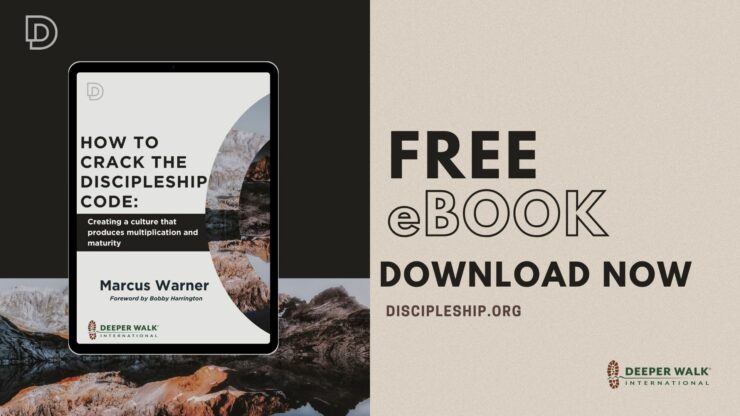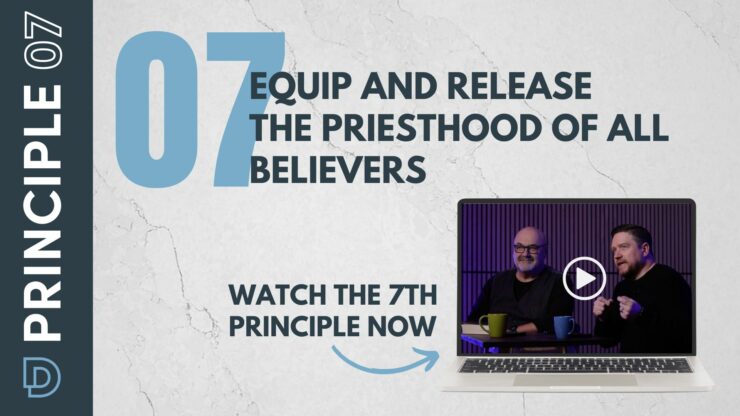THE VALUE OF SELF-EVALUATION

The purpose in a man’s heart is like deep water, but a man of understanding will draw it out.
– Proverbs 20:5
Throughout the Hill Country area of Texas, close to where I live, many homes are on well water. The average depth of wells in this area is 600 feet and can be as deep as 1,200 feet. With much of the water trapped beneath granite and limestone, the process of drilling a well can be both time consuming and costly. Yet, it is worth the time and expense as the water these wells provide is not only refreshing, it is truly life giving.
As Proverbs 20:5 points out, our purposes, motives, and feelings are like water buried deep within the earth and the wise person will draw them out in order to understand, evaluate, and ultimately surrender them to God’s Word and will. Like drilling a well, the process of self-evaluation takes time and can be costly as we surrender our will to King Jesus; yet, it is refreshing and life giving. The following is a rhythm I use for building self-evaluation into my life.
Daily: As a part of my time with the Lord.
I typically begin my quiet time by praying through Psalm 139:23-24, pausing and praying through each phrase, using questions to allow the Holy Spirit to reveal what is in the depths of my heart and mind before spending time in God’s Word.
Search me, God, and know my heart;
What is in my heart? What am I feeling? What am I believing?
test me and know my anxious thoughts.
What am I concerned about? What is burdening me? What is causing me to be anxious?
See if there is any idolatrous way in me;
Often my anxieties reveal an idol. Have I placed anything above or equal to God in my life?
lead me in the everlasting way.
This leads right into opening and reading God’s Word while asking; what are the truths from His Word that I need to learn, be reminded of, and apply to my life?
Weekly: As part of Communion.
In 1 Corinthians 11, Paul gives instructions on how to observe Communion. In verses 28 and 29, we are told to “examine” ourselves prior to taking Communion so that we do not partake “without recognizing the body.” The body spoken of here is the church. The instruction is for us to consider our relationships with others prior to participating in Communion. As a part of Communion I ask, “Is there anyone I need to seek forgiveness from or extend forgiveness to?” Then, I respond accordingly. Sometimes, this may mean abstaining.
Monthly: Review of my quiet time journal.
Once a month I review my devotional journal and look for words, phrases, or themes are repeated. I then pray through what God might be saying to me about those. When there are sin and struggles that are frequently mentioned I spend time in confession and repentance, then develop a repentance plan. When there are victories, I thank God and celebrate His working in and changing me.
Annually: A letter from Jesus.
I recently preached through Revelation 2 & 3, Jesus’ letters to the seven churches. These letters mostly follow a similar structure that include a commendation, a rebuke, an exhortation, and rewards for faithful obedience and endurance. As a part of that message, the elders asked our church to spend a week in prayer and fasting, asking the question, “If Jesus were to write you a letter, what would it say?” Over the next week, we all took time to consider and respond; Where would He commend me? Celebrate. Where would He rebuke me? Repent. How would He exhort me? Respond. This was such a challenging yet meaningful experience that I intend to make it part of my annual rhythm.
The process of self-evaluation requires intentionality and teachability. Just as we consider where those we are discipling are spiritually and their next steps, disciple-makers should be intentional about evaluating themselves and remain teachable by allowing a trusted friend into this process in order to hold up the mirror to show us our blind spots and hold us accountable. There is a constant battle to keep times of self-evaluation from becoming times of ministry evaluation. I pray you can avoid this temptation and not miss the blessing of self-evaluation by drawing out what is inside of you and humbly surrendering it to King Jesus as you follow Him, are changed by Him, and join in His mission.
This post originally appeared at: The Value of Self-Evaluation – Relational Discipleship Network (rdn.org)
Because of the importance of intentionality in disciple making, we at Discipleship.org are going to emphasize this skill set and mindset over the next four months. Please join with us and seek to share understanding, insight, and practical tools so that you can become skilled at intentionality in relational disciple making and you can help those on your team or in your leadership group to do the same. There are four ways in which we are emphasizing intentionality to help you in the next four months.
- Discipleship.org City Tour Forums – our four City Tour Forums are designed to help you and your team both understand and develop an intentionality posture. The tour is comprised of one day, high impact forums where there will be teaching and round table discussions. Every attendee also gets a copy of Brandon Guindon’s new book, Intentional: Living Out the Eight Principles of Disciple Making.
Click the image below for more information.
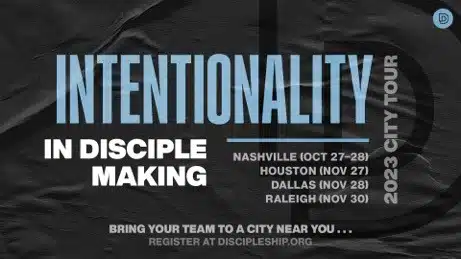
Take the FREE Individual Disciple Maker Assessment – we designed this assessment with a team of national and international disciple making leaders to help each individual be able to evaluate their disciple making mindset and skill. Just by taking this assessment, you will gain an appreciation for the value of intentionality, along with a sense of how you can increase your own level of intentionality. Click the image below to take the assessment.

- Read the short FREE book, Becoming a Disciple Maker: The Pursuit of Level Five Disciple Making – Bobby wrote this short eBook with statistician Greg Wiens to help you understand the mathematical and practical impact of one person’s disciple making efforts and skills.
Click the image below to download this free eBook.
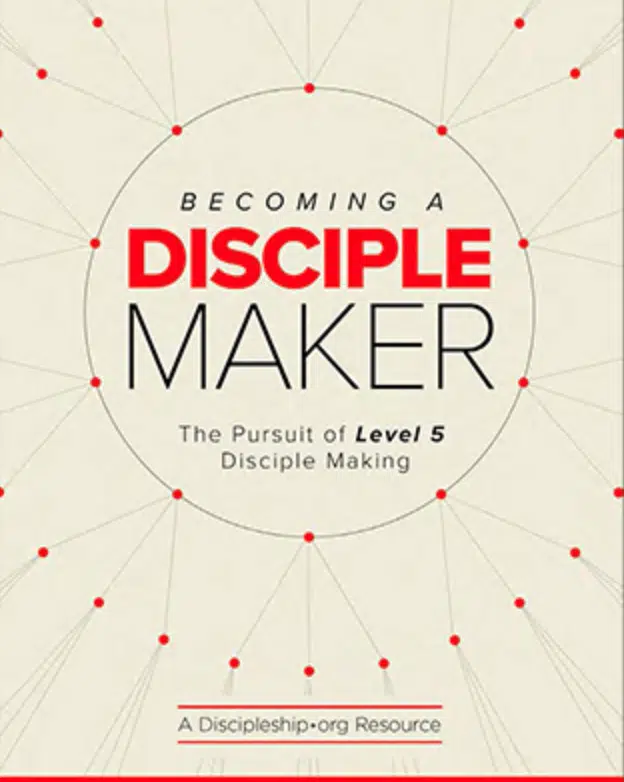
- Read Brandon Guindon’s book, Intentional: Living Out the Eight Principles of Disciple Making – Brandon wrote this Discipleship.org book and Zondervan is publishing, because the understanding and practice of disciple making is so crucial. Every attendee at each of our City Tour events (Nashville, Houston, Dallas and Raleigh), as mentioned above, will receive a FREE copy of Brandon Guindon’s book.
Click the image below to order Brandon Guindon’s book from Amazon.com.
Please join with us in this quest to better understand and practice intentionality. It will help us all to become more and more like Jesus, the world greatest disciple maker.
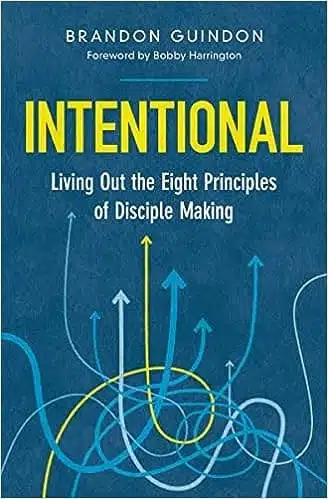
If you have enjoyed reading this, please consider joining our email list!







